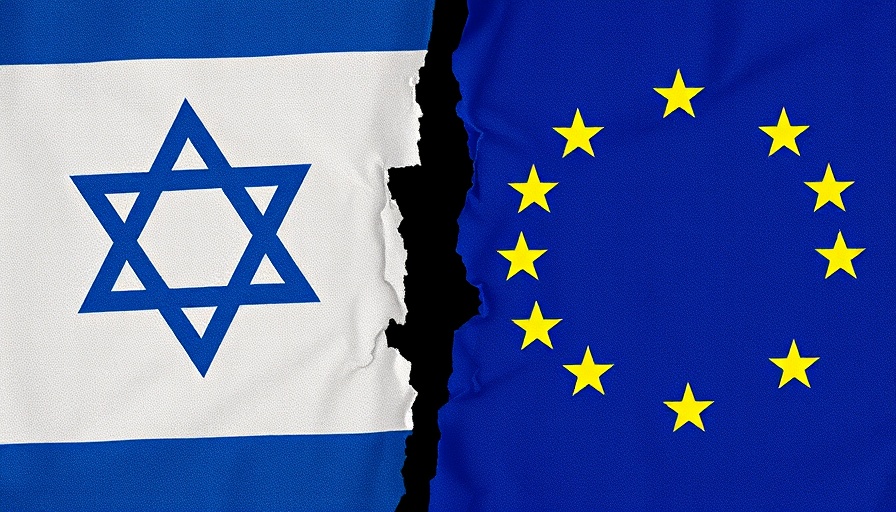
Europe's Responsibility: A Call for Diplomatic Action
As the political landscape in the Middle East continues to evolve, Europe finds itself at a critical junction, faced with the challenge of maintaining pressure on Israeli Prime Minister Benjamin Netanyahu. In a region fraught with tension, Europe’s role as a mediator and advocate for peace is more crucial than ever.
Historical Context: Understanding the Stakes
The longstanding conflict between Israel and Palestine has shaped regional dynamics for decades. With Netanyahu's administration pursuing policies that critics argue exacerbate tensions with Palestinians, Europe needs to leverage its diplomatic power. Historical attempts at peace negotiations suggest that unwavering pressure and clear communication of consequences might steer Netanyahu towards more conciliatory policies.
Why European Pressure is Important: The Impact of Inaction
Failure to exert pressure could lead to a status quo that many perceive as increasingly untenable. If European nations remain passive, it could signal tacit approval of policies seen as undermining peace efforts. The international community’s reluctance to hold leaders accountable often results in a prolonged cycle of violence and oppression, painting Europe as a reluctant participant in global diplomacy.
Counterarguments: Diverse Perspectives on Diplomatic Pressure
While some argue that increased pressure on Netanyahu could alienate him and further strain relations, it’s essential to consider the potential backlash of inaction. A weakened Europe could embolden hardline policies that jeopardize future negotiations. Engaging across the aisle can be a strategy to present a unified front that prioritizes human rights over political interests.
Two Key Areas of Focus: Human Rights and Economic Consequences
1. **Human Rights**: Emphasizing the importance of human rights in diplomatic discussions is paramount. European nations should work toward highlighting the impact of Israel's policies on Palestinian civilians, pushing for legislative changes that uphold international human rights standards.
2. **Economic Consequences**: Another tool at Europe's disposal is the economic leverage it holds over Israel. By considering economic sanctions or trade adjustments, Europe can incentivize a shift in Netanyahu's policies. Such measures should be well-communicated, making clear that the aim is to foster peace, not isolation.
The Role of Public Opinion: Engaging Citizens in European Policy
Europe’s leaders must also connect with their citizens, fostering an informed public discourse about the Israeli-Palestinian conflict. Public support for a more active role in these negotiations can bolster governmental initiatives aimed at applying pressure on Netanyahu’s administration.
Future Predictions: Navigating the Path Ahead
Looking forward, Europe must remain a key player in the quest for lasting peace in the Middle East. As the global landscape shifts, the implications of Europe’s actions—or lack thereof—will resonate beyond the region, influencing international relations and cooperative efforts across various fronts.
In conclusion, while it may seem challenging for Europe to pressure an established leader like Netanyahu, adapting strategies for engagement is crucial. Understanding the intricate dynamics of the conflict will offer pathways to constructive dialogue and potential resolution. Now is the time for Europe to act decisively, promoting not only diplomatic goals but also the principles of justice and equality in global affairs.
 Add Row
Add Row  Add
Add 



Write A Comment